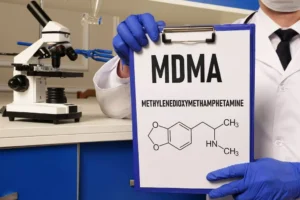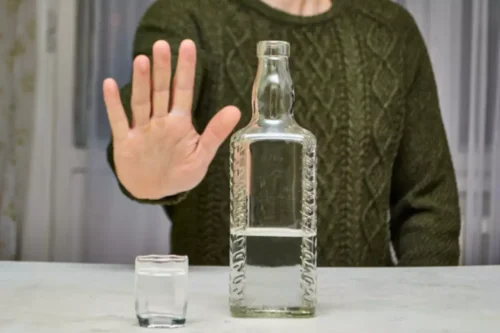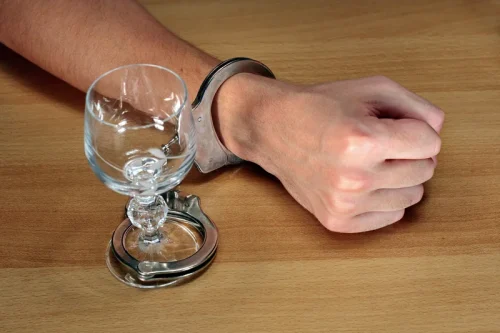
Part of their recovery process will be learning to be responsible for their actions. You might be more than ready to let your loved one know how you feel about the issues their addiction has caused and feel a strong urge to get them to change. Having an effective conversation involves learning how to communicate with someone who has an addiction.
The effects of drug abuse and addiction on family and friends

Detox may occur in a hospital setting or as a first step to the inpatient or outpatient rehabilitation process. Drug addiction, or substance use disorder (SUD), is when someone continues using a drug despite harmful consequences to their daily functioning, relationships, or health. Using drugs can change brain structure and functioning, particularly in areas involved in reward, stress, and self-control.
- Addiction recovery programs offer substantial literature, usually in the blog sections of their websites, about addiction-related issues.
- Read on to learn how to overcome the challenges that can occur when living with a loved one with addiction, along with how to care for them — and yourself.
- The American Psychiatric Association refers to addiction as severe substance use disorder (SUD) and describes it as a condition where someone uses a substance despite harmful consequences.
- Most publications on the effects of drugs on the teenage brain are written by scientists for scientists.
- If you find it hard to end relationships, addressing the underlying causes could help as well as understanding what addiction really is.
Treatment Options
Severe substance use disorder can put a strain on or deplete someone’s finances. It can bring up legal troubles, put people in physical danger and lead to all sorts of other problematic scenarios. So how can you help someone who’s recovering from substance abuse disorder? Here are seven tips to keep in mind as you support someone in their recovery journey. An intervention is an organized effort to intervene in a person’s addiction by discussing how their drinking, drug use, or addiction-related behavior has affected everyone around them.
How to Break an Addiction: A Guide to Overcoming Addiction
The more your loved one feels heard, the more they’ll see you as supportive, someone they can confide in. Your loved one may run up credit card debt to support their drug use, seek loans, or ask to borrow money without any solid reason. When they arrive, explain that you’ve gathered everyone together because you’re concerned about their behavior.

- You may be aware of the need for getting your own treatment for a substance use disorder.
- Fortunately, addiction is treatable and there are things that you can do to improve your success in overcoming your addiction.
- However, don’t allow yourself to become overwhelmed with the “unhappy endings” that group members may share.
- You can then apply what you learned from the first time you quit or cut down to be more successful next time.
- Fortunately, with consistent treatment and compassionate support, it’s possible – and common – for people to recover from addiction and get back on track with their health, relationships and goals.
The National Institute on Drug Abuse (NIDA) recommends that people spend a minimum of 90 days in treatment. There are a number of different treatment options that can be effective, so it is important to consider the options. Think about which approach might be best suited to you and your loved one’s needs and goals. The other important aspect of avoiding replacement addictions is to address any underlying mental health problems. Substance use commonly occurs alongside other mental health conditions.

How well do you score on brain health?
It should convey concern and the desire to help, while noting the changes in job performance. Be prepared, though, for the possibility that your colleague will dismiss your concern. Still, it’s important to let the person know you are receptive to talking any time. In people with addiction, dopamine receptors activate and tell the brain that drugs are rewards. Over time, the brain changes and adapts as it becomes dependent on the substance being used.
You want to help your loved one with addiction in any way you can, but you can’t control exactly how they do it. They may have unconventional ways of looking at addiction, loving an addict or maybe they’re experimenting with alternative therapies or treatments. Telling them that one drink “doesn’t count,” for instance, will only enable their behavior.
- It can bring up legal troubles, put people in physical danger and lead to all sorts of other problematic scenarios.
- And data from the previous year showed that only about one tenth of individuals with an SUD received the treatment they needed.
- The person starts needing the substance to feel pleasure and reward.
- Healthcare providers can be very supportive and helpful while navigating these challenges.
- You can reduce your stress levels by eating right, exercising regularly, sleeping well, and practicing a relaxation technique such as yoga, deep breathing, or meditation.
Place obstacles between you and your addictive behaviors

Al-Anon, GamAnon, and other similar groups can normalize your own experiences and help you feel less alone or isolated. However, don’t allow yourself to become overwhelmed with the “unhappy endings” that group members may share. Train yourself to listen for the “happy endings” and recognize that there is hope that your child will be able to turn around their life and get back on track in the future.
- Like AA, Al-Anon is a mutual-help group for the loved ones of those who struggle with alcohol misuse.
- Don’t lose sight of the person trapped by the addiction—sometimes, holding on to that image is what provides the fuel to keep going.
- Heavy drug use can be expensive, as can the cost of rehab and resolving legal problems stemming from your loved one’s drug dependency.
- Addiction can be lifelong, so if you’re experiencing it as a life issue, it’s very important that you work to understand what it is and your own personal risk factors.
- People who have a substance use disorder often find that overcoming it is more challenging than they expected.



Comments